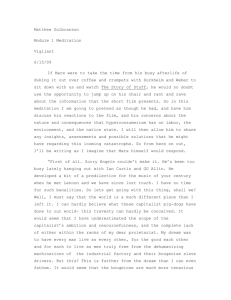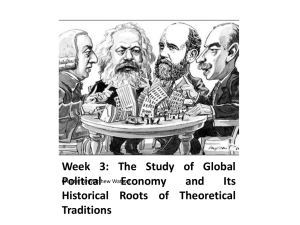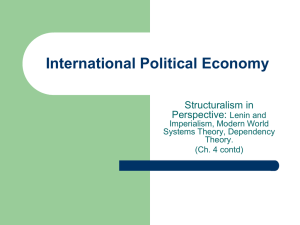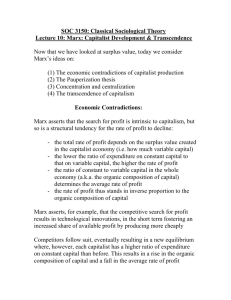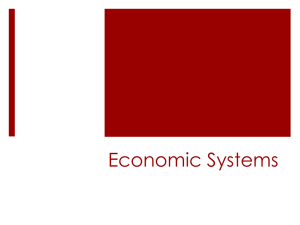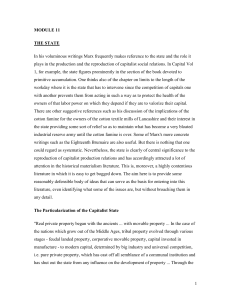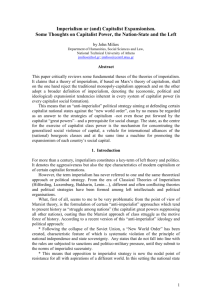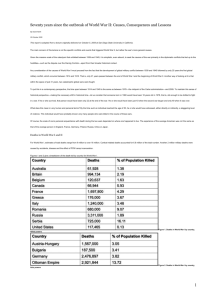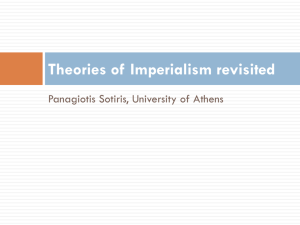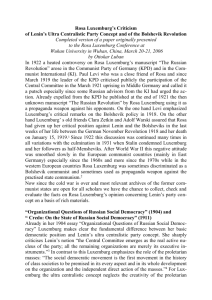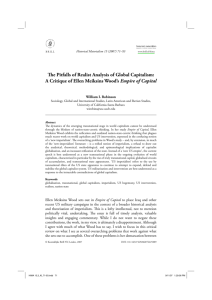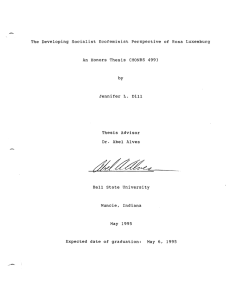Her analysis of Imperialism and her contribution to the
advertisement
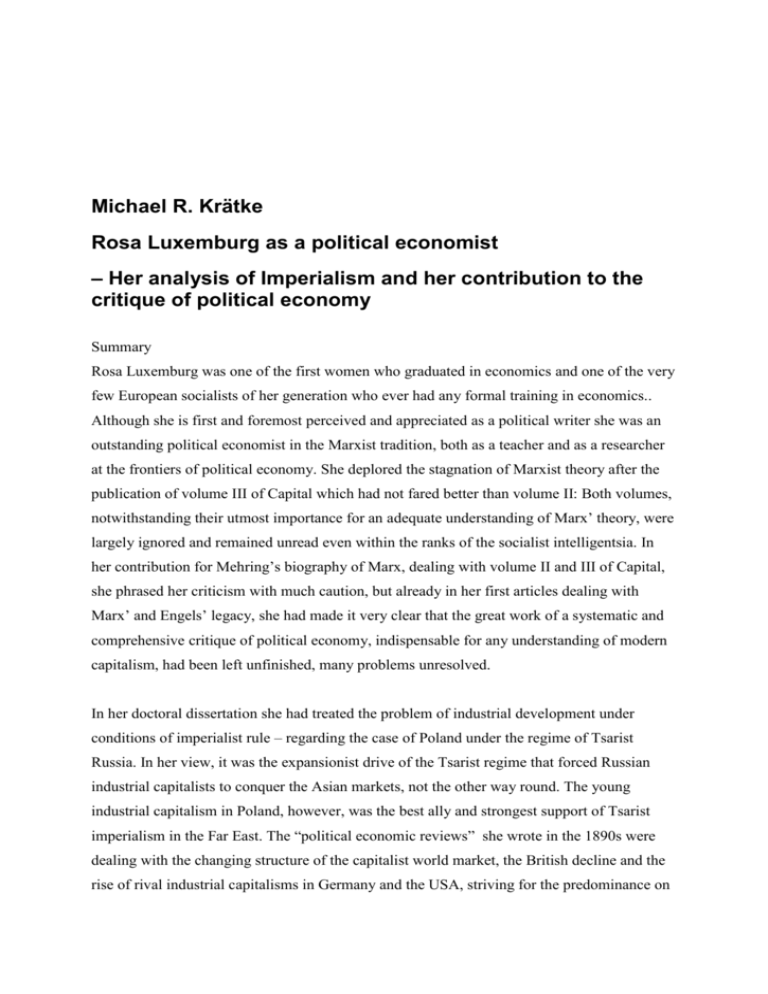
Michael R. Krätke Rosa Luxemburg as a political economist – Her analysis of Imperialism and her contribution to the critique of political economy Summary Rosa Luxemburg was one of the first women who graduated in economics and one of the very few European socialists of her generation who ever had any formal training in economics.. Although she is first and foremost perceived and appreciated as a political writer she was an outstanding political economist in the Marxist tradition, both as a teacher and as a researcher at the frontiers of political economy. She deplored the stagnation of Marxist theory after the publication of volume III of Capital which had not fared better than volume II: Both volumes, notwithstanding their utmost importance for an adequate understanding of Marx’ theory, were largely ignored and remained unread even within the ranks of the socialist intelligentsia. In her contribution for Mehring’s biography of Marx, dealing with volume II and III of Capital, she phrased her criticism with much caution, but already in her first articles dealing with Marx’ and Engels’ legacy, she had made it very clear that the great work of a systematic and comprehensive critique of political economy, indispensable for any understanding of modern capitalism, had been left unfinished, many problems unresolved. In her doctoral dissertation she had treated the problem of industrial development under conditions of imperialist rule – regarding the case of Poland under the regime of Tsarist Russia. In her view, it was the expansionist drive of the Tsarist regime that forced Russian industrial capitalists to conquer the Asian markets, not the other way round. The young industrial capitalism in Poland, however, was the best ally and strongest support of Tsarist imperialism in the Far East. The “political economic reviews” she wrote in the 1890s were dealing with the changing structure of the capitalist world market, the British decline and the rise of rival industrial capitalisms in Germany and the USA, striving for the predominance on the world market. As she pointed out in her polemic against Bernstein, the expansion and restructuring of the capitalist world market was still in full sway, the capitalist world economy was going through a period of transition – still far from the period of decay and final crises. That would come – once the capitalist world market had been fully established, and the imperialist race for the re-division of the world between the leading capitalist industrial states was propelling the world economy in this direction. For many years, she taught political economy at the party school of the SPD in Berlin. In her lecture notes which she prepared and rewrote as an introductory textbook of political economy, she stated the central problem of political economy: “How is capitalism possible, how can this mode of production survive, all its inherent conflicts and contradictions notwithstanding? Marxists should of course look further and ask the complementary question – the question for the conditions of impossibility of capitalism: When, how and why the capitalist mode of production becomes unviable? Unfortunately, some of the most important parts of the manuscript, dealing with the theory of value and crisis, as well as those chapters dealing with the dynamics of the capitalist world economy, are missing. However, the remaining chapters clearly show the historically well informed and clearly political concept of political economy that Rosa Luxemburg both supported and represented. What is more, some of her lectures have survived: We have seven texts, four from Luxemburg herself and three that have been written by her students following her lectures. Those texts have never been published before, although there are two lengthy comments by Rosa Luxemburg on volume II and III of Marx’s Capital which make her views rather clear (not to be confounded with the short comments on Capital, volume II and III that she wrote for Mehring’s biography of Marx). i In her magnum opus on the theory of accumulation, she tried both: To show, going beyond Marx’ incomplete analysis of the accumulation process, the conditions of the possibility of capitalist reproduction at large, on a world scale – and to show, how, when and why that very mode of reproduction will lead to a situation where it becomes not sustainable any more. The answer to both questions lies in her highly original theory of imperialism. That theory of imperialism remains relevant until this very day, even has gained importance recently while it was not yet valid in her day. The reason simply is that only in recent decennia’s the capitalist and industrial development of the former peripheries and semi-peripheries of the capitalist world economy has actually started to prevail – thanks to decolonization and a radical change of the dominant forms of imperialism. So in the end, Rosa Luxemburg, can be shown to be quite right – not for the high times of classical imperialism but for our times. i These seven unpublished manuscripts by Rosa Luxemburg will be published in the original German version in 2008 by the Karl Dietz Verlag in Berlin.
